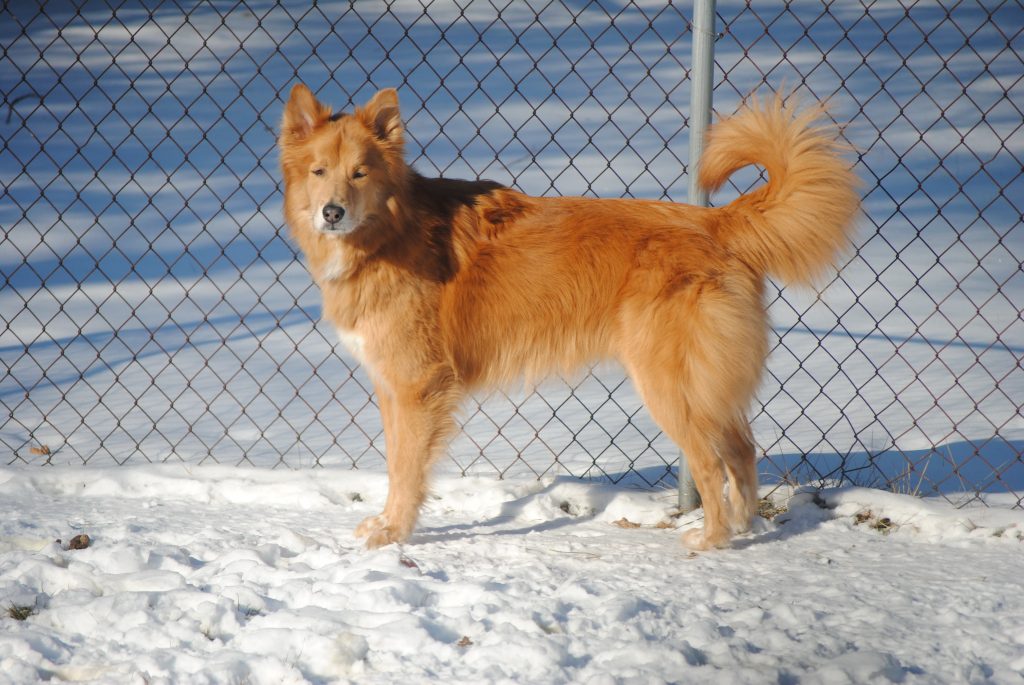Questions To Ask Your Vet About Nasal Cancer In Dogs

Nasal cancer is one of the most common forms of canine cancer – which also makes it one of the most commonly treated.
If your dog is diagnosed with a nasal tumor, or suspected to have one, your primary care veterinarian will likely refer you to a veterinary oncologist.
Can nasal cancer be cured?
The short answer is no – there is no absolute cure for nasal cancer. However, the goal of treatment is to either remove a tumor, decrease its size, and/or slow down or stop its growth. When dogs with nasal cancer are treated successfully, the symptoms that accompany the cancer will usually dissipate or completely resolve. In turn, this can increase your dog’s quality of life and, in many cases, can extend your pet’s life span.
How long can my dog live with nasal cancer?
As with most cancers, the survival rate depends on the type of cancer, where it’s located in the body, and how advanced the disease is. The key to better outcomes is to get treatment early. Unfortunately, nasal cancer cannot typically be cured, but it can be treated. With treatment, some dogs can experience significant improvement to their quality of life for quite a while.
What are the survival rates for pets treated with SRS/SRT?
PetCure Oncology’s Chief Medical Officer and clinical team continually track, review, and report on clinical results from pets treated with stereotactic radiation. PetCure’s preliminary data indicates that pets with nasal cancer treated with SRS/SRT under PetCure protocols have a median survival estimate of 634 days, or approximately 21 months.
To date*, PetCure has treated 569 nasal or paranasal cancer patients, of which 527 received SRS/SRT as their primary form of treatment. PetCure Oncology is committed to carefully tracking clinical results and providing the most updated data so that pet parents can make the most informed decisions.
Is nasal cancer painful for my dog?
Nasal cancer can be a painful condition especially as the disease progresses. If your dog is exhibiting behavior that concerns you, make an appointment with your veterinarian. If nasal cancer is suspected or diagnosed, be sure to speak to your primary care veterinarian regarding pain and symptom management options as you investigate various anti-cancer treatment options.
What treatment options are available if my dog has nasal cancer?
A variety of treatment options are available for dogs who are dealing with nasal cancer including surgery, conventional radiation, and stereotactic radiation.
Stereotactic Radiation
Stereotactic Radiation (SRS/SRT) is a state-of-the-art treatment modality for pets with nasal cancer. We have seen better and longer responses than previous and/or conventional ways of doing radiation. SRS/SRT typically results in reduced side effects and is more targeted than conventional radiation therapy.
Stereotactic radiation (SRS/SRT) for pets offers a variety of benefits including:
- Fewer side effects. Higher precision means radiation-related side effects are typically less severe and less common.
- Fewer treatment sessions. Because SRS/SRT delivers a higher dose of radiation directly to the tumor, fewer treatment sessions and anesthetic events are required. Stereotactic radiation takes just 1-to-3 visits to complete a full course of treatment.
- Non-surgical. SRS/SRT can target complex tumors in hard-to-reach parts of the body, offering a viable alternative in cases where surgery is not ideal or amputation is declined.
Surgery for Nasal Tumors
In general, nasal tumors can be difficult to treat surgically due to their hard-to-reach location. When a tumor is deep within the nasal cavity, getting inside the nasal cavity to surgically remove a tumor can be complex. As a result, it can be difficult to fully remove a nasal tumor without leaving cancer cells behind.
Conventional Radiation Treatment
Conventional radiation treatment, also known as conventionally fractionated radiation therapy (CFRT), has historically been the go-to treatment for nasal tumors. CFRT involves the delivery of lower doses of radiation in 15-21 treatment sessions over 3-4 weeks in order to spread out radiation exposure to the healthy tissue surrounding a tumor.
Why use SRS/SRT to treat nasal cancer?
There are a variety of benefits to SRS/SRT treatment for dogs with nasal cancer, including:
- High-dose and highly targeted radiation to kill the cancer cells
- Damage to healthy tissue is minimized due to SRS/SRT’s precision targeting
- Fewer treatment sessions (only 1-to-3 sessions total) means less stress on both you and your dog
- Fewer anesthetic events and the risks associated with it
Do you have more questions about nasal cancer in dogs?
We’re here for you. We know how scary a diagnosis of cancer can be. Please reach out to one of our clinically-trained Pet Advocates who can answer your questions about nasal cancer, stereotactic radiation and more. As always, there’s no charge for the call. Our Pet Advocates are here to help provide you with the answers you’re looking for. Contact PetCure Oncology today to get answers about your dog’s diagnosed or suspected nasal cancer or call us toll-free at 833-738-4376.
*Data cited as of March 2020
**Important Notice: Every pet is different, and so is every cancer. Be sure to talk to your primary care veterinarian and veterinary oncologist about all of the cancer treatments available to your dog including surgery, chemotherapy, stereotactic radiation, conventional radiation, palliative care, immunotherapy, cryotherapy and radioactive iodine I-131. Depending on your pet’s unique situation, certain types of treatment may be recommended over others.
Pet Hero Story: Karma Overcomes Nasal Cancer

